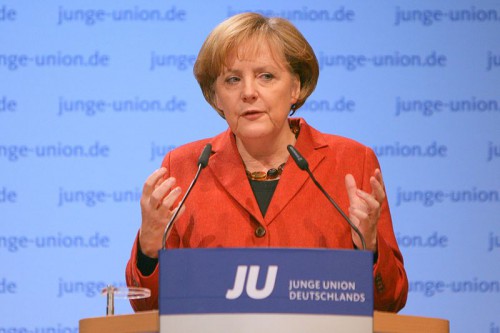The story of the Eurozone economic crisis is not a new one. Countries like Greece, Italy, Spain, and Ireland have been dragging down the rest of the EU with their financial woes. In many of these countries, especially Greece, these woes are a result of fiscal irresponsibility and laziness; Greece is a cradle-to-grave socialist state whose citizens enjoy some of the best government benefits on the planet.
In the more economically, sound EU countries, especially Germany, many citizens are not happy that their tax money is going towards bailing out these fiscally irresponsible countries. Germany has pulled the majority of the weight in the recent EU bailouts, and the German people are understandably upset that whenever an EU country is stricken with financial crisis the economic Band-Aid is taken from German coffers.
Germany, however, just like every other country in the EU, is no longer just in it for themselves. The entire point of the EU is to forge a political and economic union between the nations of Europe. For better or worse, through good times and bad, the nations of the EU have vowed to support each other and each member state is now a part of something bigger than themselves.

(Photo courtesy of Wikimedia Commons)
The fates of the EU states are now intertwined. Greece is no longer on the Drachma, and Germany is no longer on the Mark. Both countries are on the Euro, and therefore German prosperity depends on Greek prosperity. If the rest of the EU stands by and lets Greece careen into fiscal disaster, it is only a matter of time before the disaster reaches them too. Therefore, by helping Greece, Germans and other Europeans are helping themselves as well.
The EU does not force any countries to join them. In fact, several countries, especially Turkey, have had trouble gaining acceptance into the EU. The point is that any nation in the EU entered the alliance voluntarily. Do Germans have the right to complain about helping other countries when they knew what they were getting into by entering the EU? Although only the most credible economic experts have the foresight to predict such a devastating recession, as my colleague Mr. Ben-Joseph points out in the article next to this, this behavior in Greece is not new. Greece has been a pampered, cradle-to-grave state for many years now, and the Germans should have understood the implications of entering an economic union with this country.
Germans do have the right to be resentful of their position in the EU. It must be incredibly frustrating to have one of the most efficient economies in the world and be constantly bailing out your inefficient neighbors. However, it is hard to sympathize with the German position seeing as they voluntarily entered the EU with an understanding of the other participating countries and their economic practices. And while Germany has always been known for its efficient economy, the Germans would be kidding themselves if they claimed that none of their recent economic successes are a product of the benefits of being an EU member. The system has given to them, so it is only fair that they give back in order to keep the system intact.






